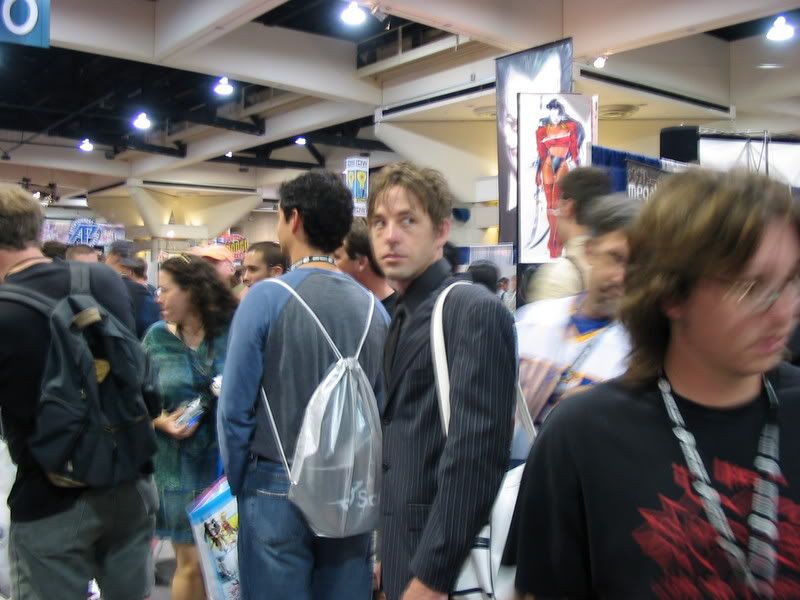"Reissue! Repackage! Repackage!"
Billy Bragg - Reissue Promo

There are two sides to Billy Bragg:
There’s the politically aware, protest song singing, working class hero… and then there’s the boy who just wants to be loved.
Both sides of Bragg are well represented on this sampler from four of Billy’s earliest albums. No Wilco to be found here, this (for the most part) is just Bragg and his guitar churning out youthful 3-minute Costello-esque songs.
The songs about love are (of course) timeless with topics ranging from heartbreak (A New England) to unrequited love (The Saturday Boy) to being played (Only Bad Signs).
It also features a biting look at London’s club-land (Talking Wag Club Blues) that might have laid the groundwork for Elvis Costello’s “This is Hell.”
The political songs are surprisingly relevant despite being written in the Reagan/Thatcher era. Lyrics such as "you can fight for democracy at home and not in some foreign land" and "if you thought the army was here protecting people like yourself, I've some news for you, we're here to defend wealth", perhaps mean more today than they did in the 1980’s.
Politics aside, Billy Bragg knows his way around a melody. The best song on the album by far is 1986’s Greeting To The New Brunette. It features not only Johnny Marr’s layered musical landscape of guitar work, but also features the late great Kirsty MacColl on backing vocals.
The tale of a young, volatile couple remains (in my humble opinion), Billy Bragg’s finest piece of work in his 20+ year career.

There are two sides to Billy Bragg:
There’s the politically aware, protest song singing, working class hero… and then there’s the boy who just wants to be loved.
Both sides of Bragg are well represented on this sampler from four of Billy’s earliest albums. No Wilco to be found here, this (for the most part) is just Bragg and his guitar churning out youthful 3-minute Costello-esque songs.
The songs about love are (of course) timeless with topics ranging from heartbreak (A New England) to unrequited love (The Saturday Boy) to being played (Only Bad Signs).
It also features a biting look at London’s club-land (Talking Wag Club Blues) that might have laid the groundwork for Elvis Costello’s “This is Hell.”
The political songs are surprisingly relevant despite being written in the Reagan/Thatcher era. Lyrics such as "you can fight for democracy at home and not in some foreign land" and "if you thought the army was here protecting people like yourself, I've some news for you, we're here to defend wealth", perhaps mean more today than they did in the 1980’s.
Politics aside, Billy Bragg knows his way around a melody. The best song on the album by far is 1986’s Greeting To The New Brunette. It features not only Johnny Marr’s layered musical landscape of guitar work, but also features the late great Kirsty MacColl on backing vocals.
The tale of a young, volatile couple remains (in my humble opinion), Billy Bragg’s finest piece of work in his 20+ year career.






